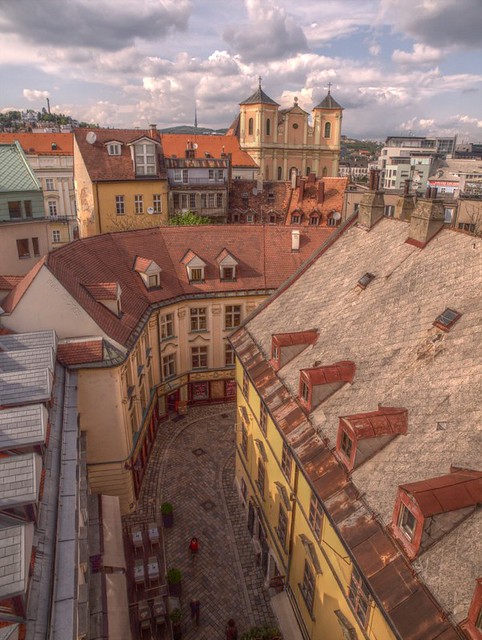However, Slovakia, the smallest and most open of the three countries, is powering ahead, notching up 2.7 per cent annual GDP growth in the second quarter, thanks largely to the European motor industry.
Vladimir Vano, chief economist at Volksbank Slovensko, took a look at why Slovakia is outperforming its peers, and found that the the good results (industrial production is rising by an annual 10.1 per cent) are largely the result of outperformance in two sectors – cars and electronics.
“The overall growth can be credited to a handful of major Slovak industrial sectors, such as production of transport vehicles (+42 per cent year-on-year) and production of electrical equipment (+10.3 per cent year-on-year),” he wrote in a report.
Slovakia is benefiting because it largely specialised in these two sectors as it has integrated with the rest of the EU. As the economic crisis bites, manufacturers are looking to shave costs, and Slovakia’s cheap but qualified workers, as well as the large level of previous investments in both sectors are luring manufacturers to shift still more productive capacity to Slovakia.
Slovakia has the world’s highest per capita car production with three large factories owned by Germany’s Volkswagen, PSA Peugeot Citroen of France and Kia, the South Korean group, as well as a raft of parts suppliers. This year investments of about €1bn in expanding production lines are starting to take effect, further boosting output.
“…even industries facing sluggish or declining demand try to streamline their costs by making higher use of their facilities in cheaper CEE countries, while downsising more radically those with a higher cost base, usually in western Europe,” writes Vano.
This is one area where being in the eurozone is actually helping a country. Many investors are choosing Slovakia over Hungary and the Czech Republic because it is a member of the common currency, which takes away currency risk. Other CEE countries have seen their currencies sag against the euro, but swings in the forint, zloty and koruna have been quite wild, adding an element of uncertainty to investment decisions.

Source: Volksbank
Vano says that the backbone of Slovakia’s performance has been its improvement in net exports. “In 2011, Slovakia recorded its best foreign trade surplus on record, to the tune of €2.4bn (3.5 per cent of GDP). With imports slowing faster than exports, the trade surplus jumped to an identical amount during just the first half of 2012 (€2.5bn). That means a staggering 161 per cent increase from the same period last year, and a more than four-fold jump in the second quarter alone.”

Source: Volksbank
The question is how long Slovakia can keep up its strong performance, especially as domestic demand, retail sales and government investment all show signs of stagnation or slump, and the government is continuing to tighten the fiscal screws to keep the deficit and public debt under control?

Source: Volksbank
Real GDP growth should slow in upcoming quarters as figures for upcoming quarters will be compared to the high base of late last year. The slowdown in western Europe should also be a drag on the economy – but Slovakia will still be doing fairly well.
Martin Balaz, an analyst with Erste Group, says: “We expect Slovak economy to slow down in the next quarter due to slowing industrial production, which has been the main driver of GDP growth this year. Slovak as well as eurozone sentiment indicators (PMI, IFO, ZEW) also point to a slowdown. In spite of this, Slovak economy is likely to record growth of 2 per cent for the year.”














